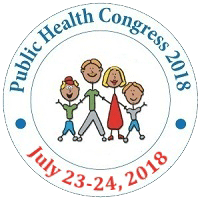
Sangeeta Gupta
Delaware State University, USA
Title: An Assessment of the Relationship between M-Health and Health Literacy Typologies on Foodborne Diseases in James Town, Accra, Ghana.
Biography
Biography: Sangeeta Gupta
Abstract
Background: In this exploratory study, we examined the relationship between receipt of health information on one’s mobile phone and their health literacy on foodborne diseases. In the developing world, diarrheal diseases are still the leading cause of death among children under five years of age. Ghana experiences high incidence of foodborne illnesses annually.
Methods: A survey questionnaire was administered to a random sample of 401 individuals in James Town, Accra. ANOVA tests were undertaken to assess bivariate association between health literacy and m-health. Multiple adjusted linear regression models were used to examine the relative effects of receipt of health information on mobile phone on health literacy.
Results: The instrument was internally consistent (Cronbach alpha=0.754) and valid. At the bivariate stage of analyses, receipt of health information on mobile phone, age of respondents, and educational level of participants were statistically significant with health literacy. The multiple regression models showed that receipt of health information on mobile phone and educational level are predictors of health literacy. After controlling for age, we found that a unit increase in the extent of receipt of health information is associated with 0.478 increase in health literacy score. Although, receipt of health information on mobile phone loses its predictive power after controlling for both education and age, we found that a unit increase in one’s education was associated with 0.644 increase in health literacy score.
Conclusion: The study demonstrated a direct positive relationship between receiving health information on mobile phone and heath literacy controlling for covariates in the urban poor context. That means, m-health programs that use the mobile phone as health messaging outlet may, in fact, enhance health literacy among the poor. Future studies may have to design examine specific health information and messages received and their association with different health literacy typologies.

